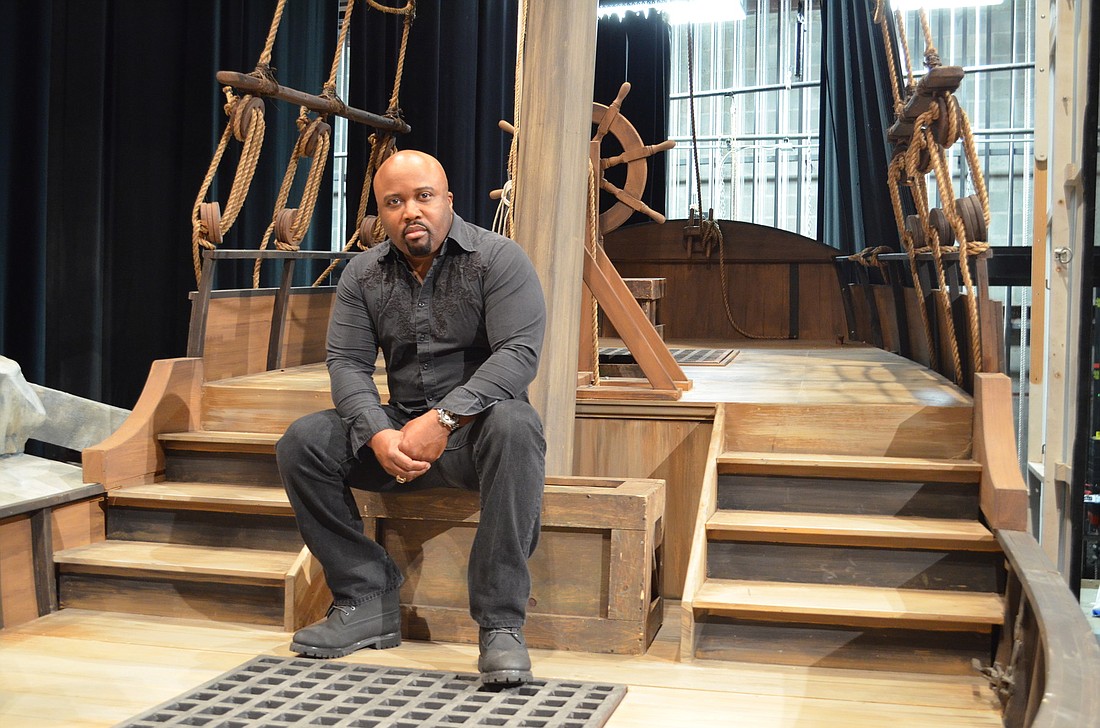- April 25, 2024
-
-
Loading

Loading

In 1991, Kevin Short went on tour with New York City Opera as Figaro in “Marriage of Figaro” — it’s not often you’ll see a black leading man in opera. He remembers a particularly stinging review from the performance, in which the writer asked: “Why is New York City Opera pushing this social experiment on top of us?”
Short knows firsthand the casting plight black males face in opera companies. But, he says, Sarasota Opera does it differently — Maestro Victor DeRenzi casts for voice first, then for appearance. Short will play the title role of The Dutchman in “The Flying Dutchman,” which opens March 1.
Short, who was born in Washington, D.C., and grew up in southern Maryland, calls Sarasota Opera his home opera because it’s where he first got his start in winter 1991, prior to his Metropolitan Opera debut later that year. He’s come back to perform in title roles in about 10 seasons since then. He says it’s in part to DeRenzi’s casting process.
“I’ve performed roles here that in the states, I probably wouldn’t ever have the opportunity to perform,” he says.
In other places around the United States, opera’s casting decisions reflect unspoken prejudices barring black men from singing the lead regardless of their qualifications, Short says. Short is qualified for a lead role, at least according to his resume, which includes singing with the Metropolitan Opera, the most championed opera house in the country. He was also the operatic soloist featured in the winter Olympics’ opening ceremony in 1998 in Nagano, Japan.
Short thinks the decisions stem from a certain level of comfort, or perception of the audience’s comfort. It makes some people uncomfortable to see a white female paired with a black male lead. He also thinks it’s easier for black women in opera because people have less of a problem with that pairing. He also suggests it’s hardest for tenors who typically play the love interest.
“Luckily, I’m a bass so I often sing the role of devils and villains,” he says. “Playing bad guys makes it somewhat easier, but if I were a tenor playing a love interest, I’d have an even harder time.”
Short, who lives in Switzerland part of the year, has been successful abroad. It’s a trend among black male opera singers pursuing title roles.
“In Europe, they turn opera over on its ear,” he says. “They look for things to jar what the stereotype would be.”
But, it depends on each individual opera house. Short says he doesn’t make a big deal about it, and only discusses it when prompted because he says he understands the motive for some casting decisions, especially if the piece is historical, such as King Philip II in “Don Carlos.”
“It’s like doing a biopic of John F. Kennedy and casting Denzel Washington,” he says.
He’s seen some men get frustrated with the same plight, but he’s not letting it affect him. He doesn’t even mind when they use makeup to lighten his skin at some places because he thinks it makes his expressions easier to read on stage. Plus, he thinks with the advent of high definition, anyone who doesn’t fit the physical “normal” stereotype faces similar prejudices. He has seen some of his overweight colleagues have weight-loss surgeries because of this. He’s noticed opera companies have less of a problem with amplifying singers (which opera buffs consider cheating) if they have the right look. Or, if a role comes down to two singers, one with the right look and one who’s a better singer — the look typically wins.
“You see it, and you may acknowledge it, but you can’t in any way let it affect you,” he says. “You have to keep casting your net and someone will buy it — you only need a few champions in your corner — that’s enough.”
Interesting facts about Kevin Short:
Short started singing pop music, mimicking Michael Jackson and The Temptations as a boy. He first joined a choir his junior year of high school.
Short went to Morgan State University on a wrestling scholarship. One day, he decided to walk through the music department. A man, who turned out to be the music director, asked, ‘Can I help you?’ Short said he missed singing and was curious, so the director had him sing through a few patriotic songs. Because of what he heard, he offered Short a music scholarship.
Short is in the National Wrestling Hall of Fame for being an Outstanding American, an award given to wrestlers that earn international acclaim in a field other than wrestling.